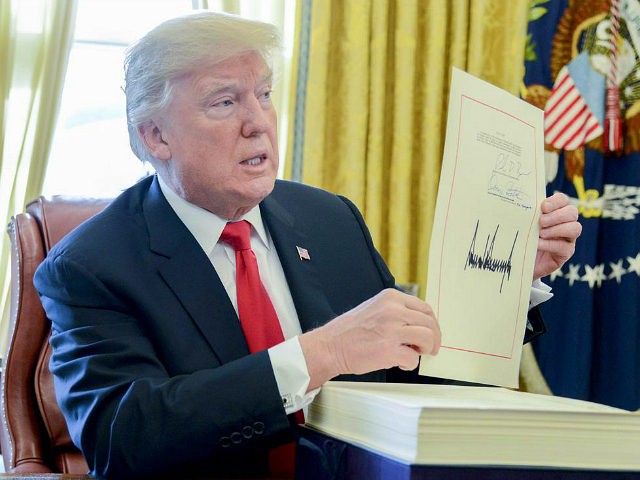Last year’s corporate cut is likely to unleash a flood tide of investment in the United States, leaving other government’s around the globe parched for revenue.
The U.S. tax rate on corporate profits was cut from 35 percent to 21 percent in last year’s watershed tax reform law. The result will be companies putting more profits and real investment in the U.S., according to a recent paper by economists at the International Monetary Fund.
One consequence of this shift of investment into the U.S. will be a reduction in the tax revenues that other countries collect from multinational corporations by 1.6 percent to 13.5 percent, according to the paper. Simply put, profits flowing into the U.S. will leave other countries with less to tax.
Another important feature driving investment into the U.S.: the introduction of expensing for most capital investment for 5 years. This means that capital expenses can be deducted from profits when acquired, rather than being depreciated over time. This makes returns on investing in the U.S. more attractive relative to other countries.
Although the focus of the paper is on the international “spillover” effects of the tax cuts, the paper supports one of the central claims of the Trump administration for the cuts. Namely, that cutting the corporate tax rate would raise investment in the U.S.
That claim has repeatedly been challenged by Trump’s critics. When Trump claimed credit for rising investment by several U.S. companies in February, the Washington Post’s factchecker column awarded him “two Pinocchios,” an indication that the Jeff Bezos-owned newspaper found Trump’s claims partly implausible. The IMF paper supports Trump over the Post.
Trump’s tax cuts could also convince other countries to follow suit by lowering their own corporate tax rates. Exactly how much revenue they surrender will depend on how large this competitive tax cut response turns out to be, according to the IMF paper.
The IMF paper was first reported on by the Wall Street Journal’s Richard Rubin, America’s leading tax policy journalist.
So who loses the most?
“Mexico, Japan and the U.K. rank near the top of the paper’s list of countries likely to lose revenue, while Estonia, Poland and Pakistan should be less directly affected,” Rubin explained.

COMMENTS
Please let us know if you're having issues with commenting.